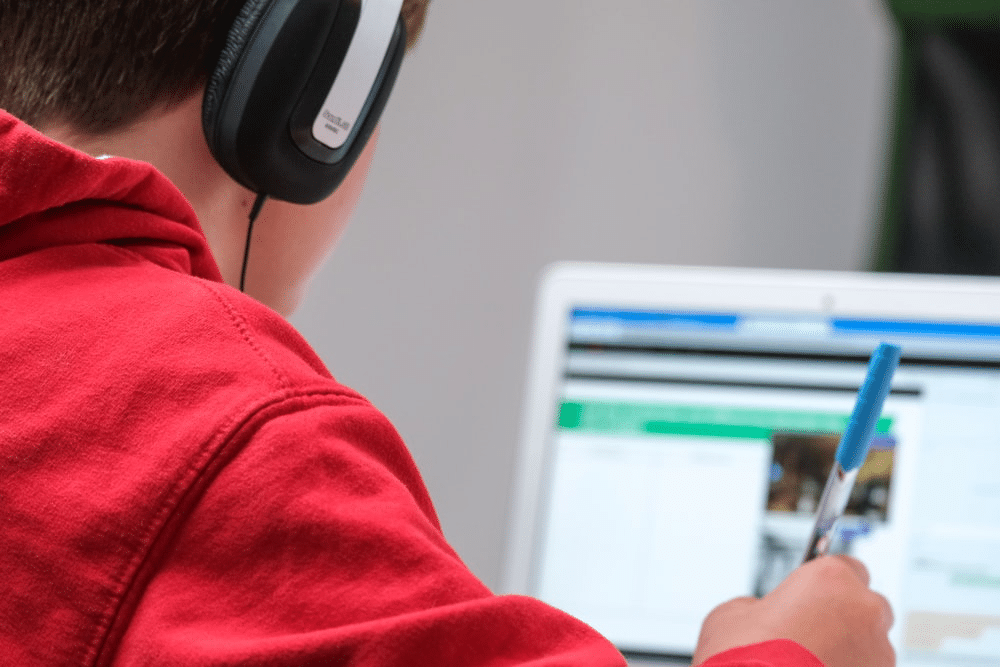
As the risk of the COVID-19 pandemic decreases, one would expect that life would gradually return to normal. More importantly, the changes that were implemented because of the pandemic would be reversed. In actuality, we have embraced some of the critical measures taken during the pandemic with open arms.
As the pandemic loosens its grip on the UK, it’s important to note that we’re still relying on old habits that were developed in the thick of the COVID-19 crisis. Today, many people continue to work from home, shop online, and send their children to online school.
According to a recent survey, 71% of employers admitted that allowing their staff to work from home either increased productivity or made little difference. 2,000 of the leading British companies participated in this survey. Similarly, online shopping doesn’t affect the quality or timeliness of products received. In fact, people can save time and money by opting for online coupon codes or subscription services. In a similar vein, online schooling doesn’t affect a child’s academic, personal, and social growth.
As one of the leading online international school, we have been providing quality online British education to students for over 19 years. Established in 2002, we’re trusted by parents across the UK, Europe (including Western Russia), Africa, the Middle East, and Central Asia. Our MA/PhD qualified subject specialist teachers deliver lessons in small groups of 8 to 10 pupils to maximise engagement, knowledge retention, and interactivity.
By maintaining a low pupil-teacher ratio, we make it easier for teachers to provide individualised attention to each student. As a result, our students thrive in three key spheres of their schooling experience: academic growth, personal development, and social learning.

We teach a well-rounded, independent curriculum that further enables our students to receive top grades and secure admission to their dream university. Online schooling offers various benefits to both students and parents. We’ve closely documented these benefits in our previous blogs.
Today, we’ll address another concern that parents commonly bring forth. While online schooling is here to stay, many parents are concerned about its effects on the quintessential British family dynamic. As a parent living in the UK or a British expat living in Europe, Africa, the Middle East, or Central Asia, you may worry about online schooling potentially weakening or breaking family ties.
British families are committed to maintaining a tight-knit family structure that rests on the foundation of closeness, respect, honesty, and selflessness. Online schooling is perceived as something that’s new, strange, perplexing, and unconventional. Like a puzzling technological advancement or an unexpected social networking update, it’s considered outlandish and suspicious.
In actuality, online schooling has been around since 1989, when it was first introduced in Phoenix, Arizona. As stated earlier, we established our institution in 2002, paving the way for online schooling to become somewhat mainstream—albeit not as mainstream as conventional schooling—in the UK. Presently, online schooling is considered one of the biggest boons in the education sector for both students and parents.
However, we understand that some parents are concerned about how online schooling can potentially interfere with or affecting their family dynamic. In this blog, we’ll dive deeper into these perceptions. We’ll also discuss the realistic—not theoretical—impact of online school on family structures in the UK.
While many parents hold certain beliefs, it’s important to note that the practical implementation of online school should be given precedence over theoretical assumptions. Continue reading to unpack whether online schooling affects the quintessential British family dynamic.
Quality Family Time

At Cambridge Home School, we offer four homeschooling programs: Primary Prep/Key Stage 2 (ages 8 to 10), Lower School/Key Stage 3 (ages 11 to 13), Upper School/IGCSEs (ages 14 to 16), and Sixth Form/AS & A Levels (ages 17 to 19). Based on their children’s ages, parents can select the right programs accordingly. Let’s dive deeper into the correlation between online schooling and quality family time.
Many parents worry about taking on too many tasks by switching to online schooling for their children. This thought process is rooted in the misconception that homeschooling requires parents to be involved in their children’s classes through and through. This isn’t the case. In fact, parents can work from home or even from the office while their children independently attend online classes at home. For younger children (ages 8 to 13), we recommend making arrangements for a sitter. However, you will not be required to intervene in the classes at any point.
At Cambridge Home School, our experienced teachers expertly keep children engrossed in the lessons at all times. They structure the classes with the utmost proficiency, thereby ensuring that students are on track. Ultimately, you can tend to your work (business, household chores, etc.) without worrying about your child requiring assistance. Our teachers take care of everything during the entirety of the classes.
Recommended Read: How Do Cambridge Home School’s Teachers Keep Students Focused During Online Classes?

Let’s explore how this correlates with quality family time. As a parent, you don’t have to worry about exhausting yourself by tending to your children 24/7. Instead, you can spend quality time with them once you return home from work. According to research, the quality of time you spend with your children matters more than the quantity.
Think about it. Would you rather your parents spent all day with you but fail to provide the attention, love, and care you were seeking? Or would you rather they shared meaningful moments with you for several hours throughout the day, amounting to over half a day when totalled?
Ultimately, quality always takes precedence over quantity. As a parent, you can compartmentalise your time by focusing on work when needed and spending quality, uninterrupted, distraction-free time with your children. Online schooling makes this possible. Instead of weakening family ties, it strengthens and solidifies them.
At Cambridge Home School, we largely attribute this balance to our proactive, experienced, empathetic, and attentive teachers. By keeping each student focused during the lessons, we help parents resume their day with ease. Following your children’s virtual international school online classes, you can help them revise, play skill-building games, attend their sports practice, and organise family excursions and activities. As a parent, you’ll appreciate this balance. Moreover, your children will cherish it even more.
—
FAQ Section
What impact has COVID-19 had on working and schooling patterns in the UK?
COVID-19 has led to a significant shift towards remote working and online education in the UK. Even as the pandemic’s grip loosens, many people still continue to work from home and opt for online schooling for their children.
Is working from home considered productive according to recent studies?
Yes, according to a recent survey involving 2,000 leading British companies, 71% of employers acknowledged that allowing their staff to work from home either boosted productivity or did not make a significant difference.
How does Cambridge Home School maintain educational quality in online schooling?
Cambridge Home School, one of the leading online international schools, employs MA/PhD-qualified subject specialist teachers to teach in small groups, usually containing 8 to 10 students. This low pupil-teacher ratio enables more individualised attention, thus ensuring academic growth, personal development, and social learning.
What age groups can enrol at Cambridge Home School?
Cambridge Home School offers four key programmes based on different age groups. They include Primary Prep/Key Stage 2 (ages 8 to 10), Lower School/Key Stage 3 (ages 11 to 13), Upper School/IGCSEs (ages 14 to 16), and Sixth Form/AS & A Levels (ages 17 to 19).
Is online schooling detrimental to the traditional British family dynamic?
Contrary to some concerns, online schooling does not adversely affect the traditional British family dynamic. In fact, online schooling can actually enhance quality family time by allowing parents to better compartmentalise their time between work and family.